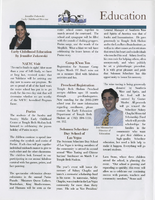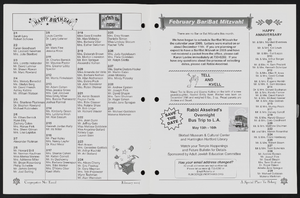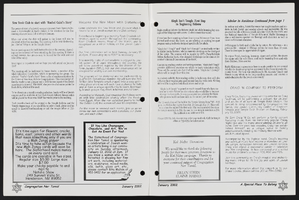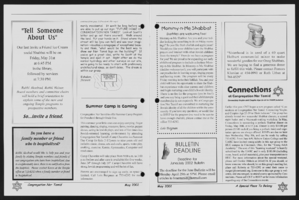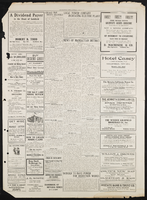Search the Special Collections and Archives Portal
Search Results
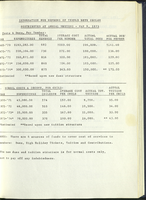
Minutes from Temple Beth Sholom Board of Directors meetings, May 1973 - May 1974
Date
Archival Collection
Description
The meeting minutes of the general membership and board of directors of Temple Beth Sholom include the proceedings of meetings held from 1973 to 1974.
Text

"An Impact of the Moulin Rouge Hotel on Race Relations in Las Vegas": paper by Roosevelt Fitzgerald
Date
Archival Collection
Description
From the Roosevelt Fitzgerald Professional Papers (MS-01082) -- Unpublished manuscripts file. Presented to the National Social Science Association, Reno, Nevada.
Text

Stella Kalaoram oral history interview: transcript
Date
Archival Collection
Description
Oral history interview with Stella Kalaoram conducted by Kristel Peralta and Cecilia Winchell on August 2, 2021 for Reflections: The Las Vegas Asian American and Pacific Islander Oral History Project. Stella Kalaoram discusses her childhood in Singapore, the occupations and ethnic diversity of her family, and the four languages she speaks: English, Mandarin, Malay, and Tamil. She shares her immigration journey to the United States with her husband, from Singapore to San Bernardino, California in 1990, and their move to Las Vegas in 2000. Stella also shares her employment experiences as a dental assistant, a housekeeper for the Cosmopolitan Hotel and Casino, and as a shop steward for the Culinary Workers Union. She also talks about contracting COVID-19 and her hospital experience, her family's differing religious faiths, and her translation work to empower the Asian-American community. Subjects discussed include: insurance benefits; Volunteer Organizer (VO); mask mandates; vaccine hesitancy; food traditions; language barriers; Baba and Nyonya cultures.
Text

